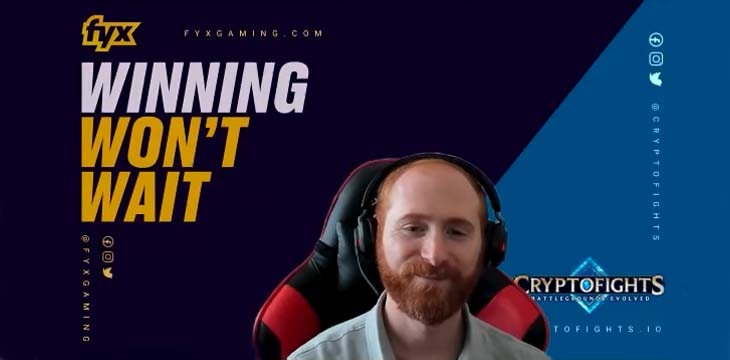|
Getting your Trinity Audio player ready...
|
CoinGeek’s Patrick Thompson is joined by Adam Kling from FYX Gaming on the latest More Than Money episode, where the two discussed the play-to-earn gaming model and blockchain gaming more generally.
Who is Adam Kling?
For those who may not know, Adam Kling is the founder and CEO of FYX Gaming, the company behind the play-to-earn game CryptoFights.
With over 20 years of experience as an entrepreneur, Kling has been involved in blockchain gaming since 2013. They initially tried to launch CryptoFights on the Ethereum network; however, he and his team migrated to Bitcoin SV after encountering unsolvable scaling issues.
What is a play-to-earn game?
Thompson begins by asking Kling to define play-to-earn games. This is a relatively new model set to revolutionize online gaming, so it’s an excellent place to start the conversation.
Kling explains play-to-earn as a model that disrupts both pay-to-play and free-to-play gaming models. It’s defined by players being able to earn money in an open economy within the game. For example, players can earn NFTs within the game and sell them on an open market.
Kling differentiates between play-to-earn gaming and esports. While there’s some overlap between the two, he says that play-to-earn is its own concept. The basic idea is that players can profit from gaming.
Kling also touches on how the BSV blockchain can improve the integrity of gaming. Since no centralized authority can control the database, and every move is recorded on the blockchain, cheating can be eliminated. This trust is crucially important because of the amount of money involved in play-to-earn gaming.
Why did FYX Gaming move to BSV, and how is scaling important in blockchain gaming?
Tying in nicely with the last point, the trust required is why it’s important for developers to build on scalable blockchains that can store all game elements on the blockchain. Thompson asks Kling to talk about this and elaborate on why his company moved away from Ethereum and onto BSV.
“This was a big, almost religious experience for us,” Kling says. He describes how he had an epiphany about blockchain gaming a few years back. However, they quickly realized the importance of scaling, realized that blockchains like Ethereum would not get the job done, and moved over to BSV.
Kling describes how some gaming companies will be defeated by their own success because of scaling issues. He’s determined to get this right for FYX Gaming and sees the greatest chance of success on the BSV blockchain.
How can the play-to-earn model add value to the lives of players?
Kling believes that the play-to-earn model can not only add value to players’ lives but can change the way humans think about gaming. He recalls how when he was growing up, some people would tell him to stop playing games as it was perceived as a waste of time.
This wrong-headed perception can change when there’s real money involved. On top of this, there’s the chance for players to earn and keep valuable in-game items. Kling also sees a world where gaming can become helpful in solving real-world problems.
“What if a game is solving real-world problems?” asks Kling.
What obstacles need to be overcome before play-to-earn games can take off?
Kling stresses that this is still seen as a niche model right now. On top of that, players use wallets like MetaMask to play on hobby blockchains.
He also sees a need to educate players that creating a wallet and adding funds to it is a little more serious than playing free-to-play games.
Thompson then asks Kling to give his thoughts on what impact play-to-earn games will have in the short, medium, and long term.
In the short term, Kling sees more new players being drawn in. He sees regulations impacting how things are done in the medium term with things like KYC checks on wallets coming in. In the long term, he says it’s an open question. We could see a whole new gaming model develop. He sees the potential for this model to be huge if it takes off.
A final message from Adam Kling and some key takeaways
Thompson asks Kling if he has a final message before they wrap up.
He says that it’s important to remember it’s still extremely early. Lots of things will be tried with varying degrees of success, and it’s entirely possible that gaming is the killer app for blockchain technology. As a final point, he encourages viewers to see this as a “new internet.” This is a point Dr. Craig Wright has made many times before.
Thompson finishes up by reviewing the key takeaways from the conversation. They are as follows:
- Games need to have the ability to scale, or they will have trouble staying online and operating as their user base grows.
- Some play-to-earn games offer payouts that are larger than the average income in emerging economies.
- There are roughly three billion gamers in the world. Play-to-earn games could be the killer app for blockchain technology.
Watch: CoinGeek New York panel, Online Games: Next Level on the BSV Blockchain

 02-14-2026
02-14-2026 




